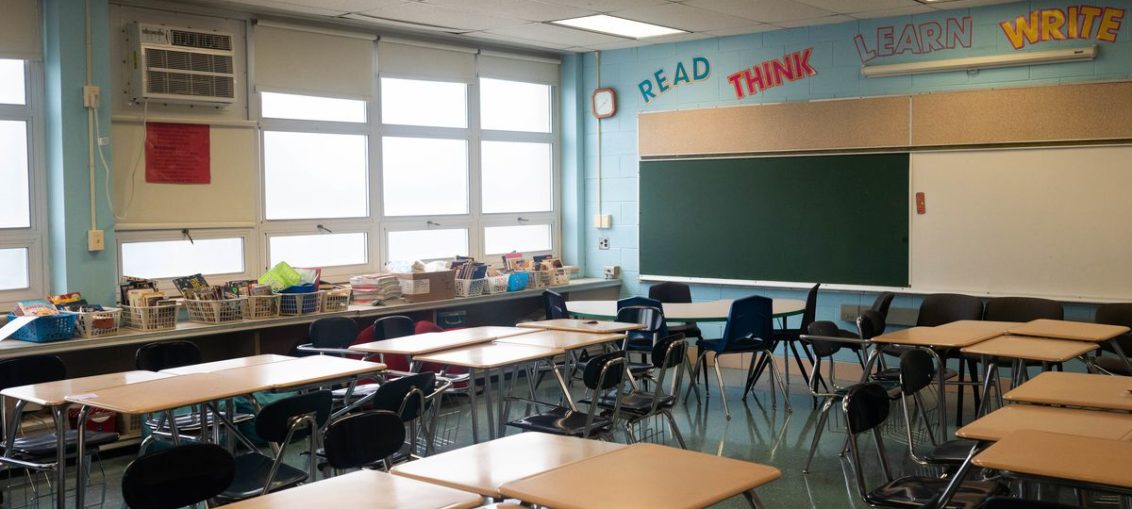
To take a look at or to not take a look at right through a deadly disease?
School districts in Illinois and around the nation are ready to be informed whether or not states will likely be allowed to request waivers from federally mandated standardized exams subsequent spring as a result of COVID-19.
Waivers, to our pondering, will be the incorrect transfer. The subsequent U.S. secretary of schooling, within the incoming Biden management, must say no to the theory, one thing a handful of states have already got executed.
We perceive the arguments in opposition to administering standardized exams as same old right through a yr that has been the rest however same old. The essence of the complaint, basically made by way of nationwide academics unions and anti-testing advocates, is that it will be a logistics nightmare for colleges to check scholars in-person right through a public well being disaster.
And given the well-documented shortcomings of far flung finding out, a serious loss of precise finding out most likely would be published in plummeting — and possibly unreliable — take a look at rankings.
“The vast majority of parents and teachers think it’s ridiculous to believe that you can get meaningful results from a standardized test in the middle of a pandemic,” as Bob Schaeffer of FairTest, a countrywide group that has raised questions usually about high-stakes checking out, advised Politico lately.
But an apprehension of plummeting rankings and logistics issues aren’t any explanation why to bury our heads within the sand. No one that cares about offering the most efficient schooling conceivable for youngsters must shrug their shoulders and say “Why bother? We already know the scores will be bad.”
Outgoing Education Secretary Betsy DeVos allowed waivers — federal necessities for standardized exams had been suspended — final faculty yr when the pandemic first hit and threw colleges into chaos. But three hundred and sixty five days with out the most important information on scholar efficiency, as restricted in usefulness as it can be, is sufficient.
“We cannot improve what we do not measure,” a coalition of main civil rights teams and schooling organizations — together with the National Urban League and the National Center for Learning Disabilities — wrote in a Nov. 20 letter to the Department of Education, making the case in opposition to checking out waivers. “[A]nd if we do not measure the opportunity gaps being exacerbated during COVID-19, we risk losing a generation of young people.”
The chance is very best for kids of colour, who’re in all probability to not have enough get admission to to the era important for far flung finding out or are disengaged from the method altogether, the letter famous.
If ever there have been a faculty yr when academics, policymakers and oldsters want as a lot information as they are able to get to totally perceive what’s going on with schooling for the following technology, that is the yr. COVID-19 has upended finding out from preschool via highschool, and the earlier each stakeholder is apprised of the whole affect on kids, the simpler.
But there’s a caveat. One that is going to equity. Schools must elevate on with checking out, sure, however scrap the high-stakes penalties. No faculty must be given a decrease efficiency ranking or threatened with being close down as a result of low rankings by way of scholars suffering to be informed on-line. No trainer must be given a deficient analysis in keeping with this information. Even the most efficient of academics are suffering mightily to show in a brand new medium with little coaching.
A handful of states already are going this direction. Tennessee, Florida, Virginia and California will administer their conventional checks, however with out the specter of sanctions in opposition to colleges or academics.
Illinois is leaning in that path, even though the state Board of Education has but to make a decision the checking out factor. Meanwhile, schooling advocates advised board member at a contemporary assembly that information from the exams would display the place the state wishes to focus on its scarce sources to assist scholars get well finding out loss led to by way of COVID-19.
It’s a possibility to take a troublesome take a look at the long-standing inequities in public schooling and put an finish to them.
“We don’t have…